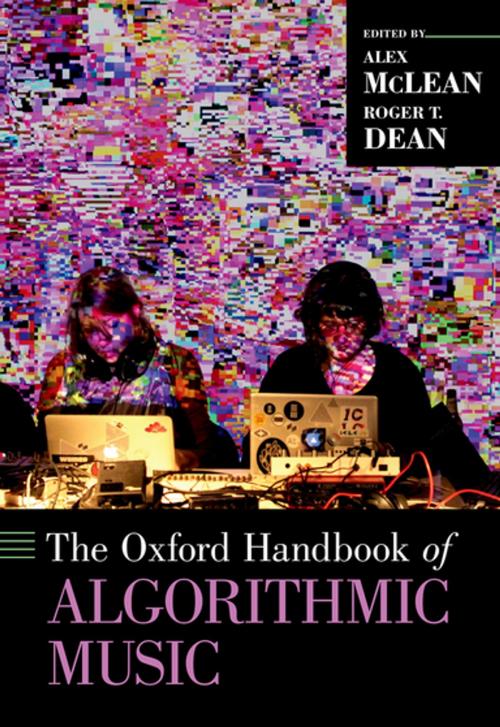The Oxford Handbook of Algorithmic Music
Nonfiction, Entertainment, Music, Business & Technical, Recording & Reproduction, Theory & Criticism, Theory| Author: | ISBN: | 9780190655716 | |
| Publisher: | Oxford University Press | Publication: | January 18, 2018 |
| Imprint: | Oxford University Press | Language: | English |
| Author: | |
| ISBN: | 9780190655716 |
| Publisher: | Oxford University Press |
| Publication: | January 18, 2018 |
| Imprint: | Oxford University Press |
| Language: | English |
With the ongoing development of algorithmic composition programs and communities of practice expanding, algorithmic music faces a turning point. Joining dozens of emerging and established scholars alongside leading practitioners in the field, chapters in this Handbook both describe the state of algorithmic composition and also set the agenda for critical research on and analysis of algorithmic music. Organized into four sections, chapters explore the music's history, utility, community, politics, and potential for mass consumption. Contributors address such issues as the role of algorithms as co-performers, live coding practices, and discussions of the algorithmic culture as it currently exists and what it can potentially contribute society, education, and ecommerce. Chapters engage particularly with post-human perspectives - what new musics are now being found through algorithmic means which humans could not otherwise have made - and, in reciprocation, how algorithmic music is being assimilated back into human culture and what meanings it subsequently takes. Blending technical, artistic, cultural, and scientific viewpoints, this Handbook positions algorithmic music making as an essentially human activity.
With the ongoing development of algorithmic composition programs and communities of practice expanding, algorithmic music faces a turning point. Joining dozens of emerging and established scholars alongside leading practitioners in the field, chapters in this Handbook both describe the state of algorithmic composition and also set the agenda for critical research on and analysis of algorithmic music. Organized into four sections, chapters explore the music's history, utility, community, politics, and potential for mass consumption. Contributors address such issues as the role of algorithms as co-performers, live coding practices, and discussions of the algorithmic culture as it currently exists and what it can potentially contribute society, education, and ecommerce. Chapters engage particularly with post-human perspectives - what new musics are now being found through algorithmic means which humans could not otherwise have made - and, in reciprocation, how algorithmic music is being assimilated back into human culture and what meanings it subsequently takes. Blending technical, artistic, cultural, and scientific viewpoints, this Handbook positions algorithmic music making as an essentially human activity.















